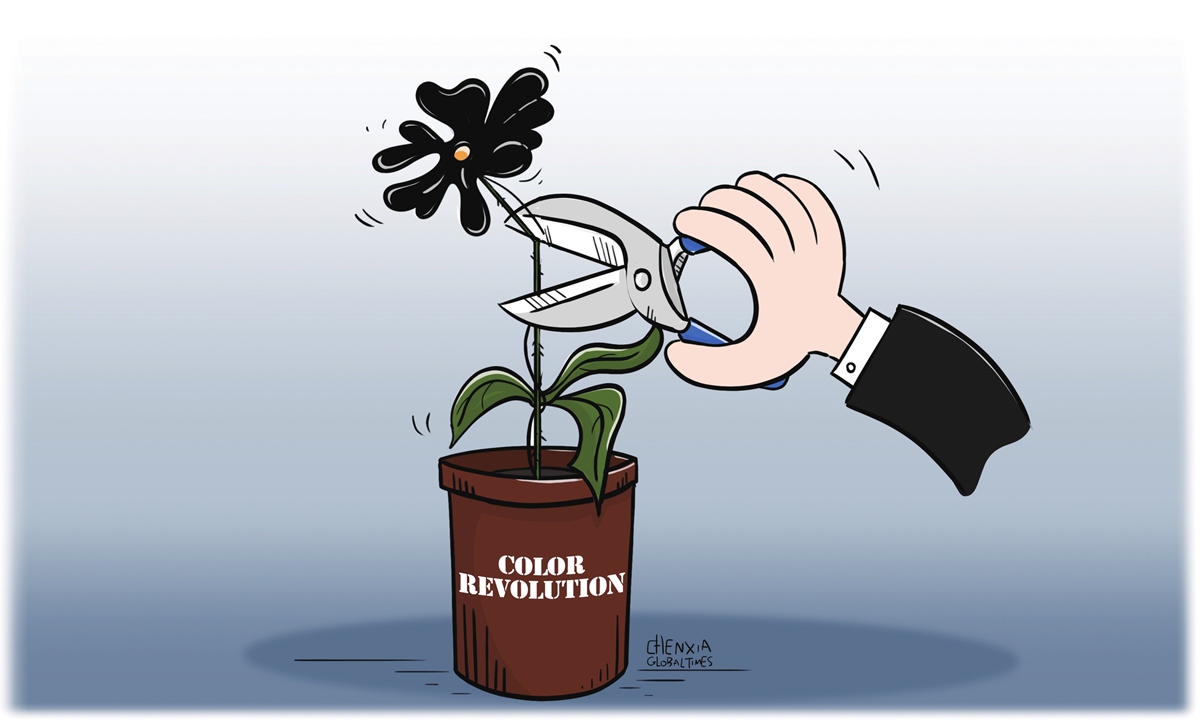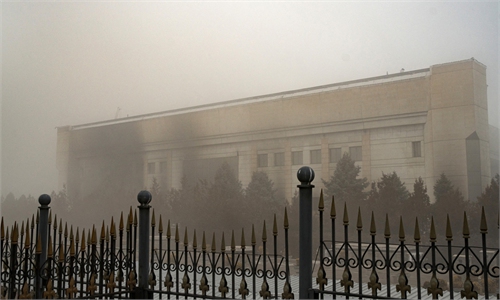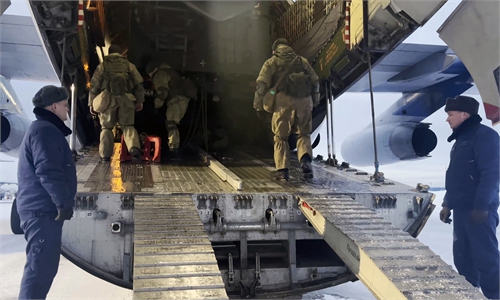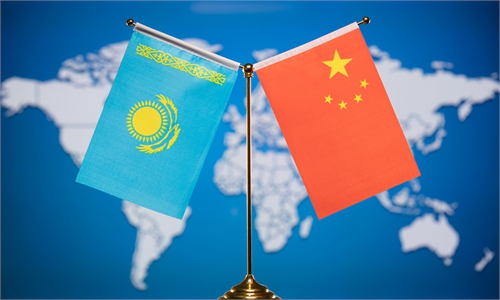CSTO expected to play role of ‘fire wall’ and ‘fire extinguisher’ in Central Asia

Illustration: Chen Xia/Global Times
Kazakhstan unrest reflects the vital importance of strengthening national security and realizing regional security. Against the background of profound changes unseen in a century, eliminating the influence of Western forces and balancing the relationship between security and development is a test for many countries, including Kazakhstan.
When the protests in Kazakhstan were on the verge of getting out of control, the Collective Security Treaty Organization (CSTO) played a very prominent role in helping the Kazakh government quickly restore normalcy.
At the request of Kazakh President Kassym-Jomart Tokayev, the CSTO for the first time agreed to send peacekeepers to help the Kazakh government deal with the rioters. Although this is the first time the CSTO deployed troops to a member state since its founding, it embodies the bloc's sound legal basis and its firm determination to maintain the security of member states in the region.
In fact, the background of the CSTO's establishment is closely related to dramatic changes after the disintegration of the Soviet Union and the demand to maintain the security of each member state and the region. By 2003, the framework included a joint command center in Moscow with a rapid reaction force based in Central Asia. This equipped the group with its own "fist."
Especially after "color revolutions" broke out in Kyrgyzstan in 2010, the CSTO has learned lessons, and has continuously improved its legal arrangements for safeguarding the security of its member states. The organization has gradually established the logic of collective action. In December 2010, the member states approved a declaration establishing a CSTO peacekeeping force. And the peacekeeping operation in Kazakhstan is also based on the bloc's related treaties.
CSTO troops were swiftly deployed to Almaty at the request of Tokayev last week. They are clearly well-trained troops. Most of the troops sent by member states are rapid reaction forces of the CSTO. With the full deployment of CSTO's peacekeeping force and the coordination with local police and security forces, order has been restored and the violence has been curtailed.
Some Western media and analysts have long speculated and criticized the CSTO, believing the bloc is like the new Warsaw Pact and is a puppet of Moscow and it is designed to counter NATO. But the CSTO has repeatedly said that it seeks to achieve a number of goals in the political and military spheres, including protection on a collective basis of the independence, territorial integrity and sovereignty of member states. In addition, it is committed to addressing such important and mutually interesting topics as countering international terrorism and extremism, the illicit distribution of drugs, and ensuring border security. The reason some Western politicians are biased toward the CSTO is that the group has increasingly become a "fire wall" and "fire extinguisher" to prevent external forces from engaging in color revolutions in Central Asia.
In the wake of the massive protests in Kazakhstan, we must pay attention to the forceful power when the black hands behind the scene implement the "color revolution."
Meanwhile, although the pandemic blocks the cross-border communications between "democratic elites," the internet provides convenient channels. Some social media apps that don't need the internet but only Bluetooth have become a core platform for protests to coordinate actions after the internet breakdown.
When the COVID-19 pandemic hit hard, tens of thousands of NGOs were active in Kazakhstan. All the above mentioned have cultivated social forces for large-scale protests and demonstrations occurring in Kazakhstan right now. Therefore, the primary task of the Kazakh government and the peacekeeping forces is to stabilize the situation, and the key to maintaining long-term stability in the country is to eradicate the influence of Western and hostile forces.
The author is the deputy dean and a professor of the Russian Institute of Tsinghua University. opinion@globaltimes.com.cn



